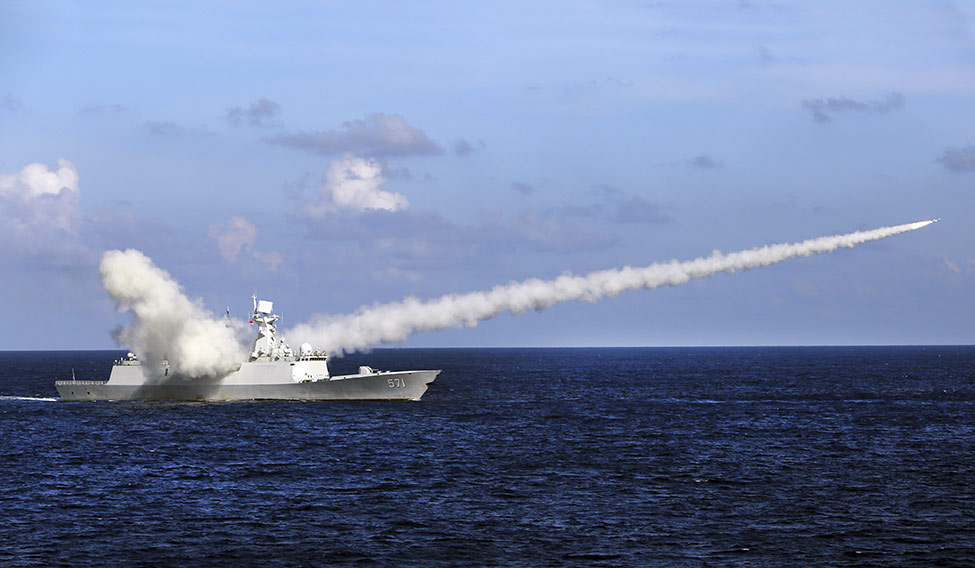Getting used to Donald Trump in the White House has not been easy for any government. Aside from his ‘unpresidential’ rants on Twitter and elsewhere, his refusal to answer inconvenient questions at press conferences and his pugnaciously adversarial relationships with anyone he doesn’t care for (which seems to be a large portion of the global population), there have been his dramatic decisions in his first days in office: the ‘Muslim Ban’, denying entry to the US for people from seven largely Muslim countries; the suspension of refugee admissions, notably from war-torn Syria; and the draft executive order on the H-1B visa policy, which has sent Indian IT stocks plummeting. Foreign countries have barely absorbed one shock when the next one comes out of 1600 Pennsylvania Avenue. We are all reeling.
The first realisation is that the initial reassurances we were all given by wise Americans—that we should take Trump seriously, but not literally—are all hokum. It seems we must take Trump both seriously and literally, for he appears determined to fulfil every one of the campaign promises that astonished foreigners derided him for. I had laughed at the prospect of America actually building a wall along the Mexican border; I am laughing no more.
What, then, awaits us in Asia? The H-1B visa issue should come as no surprise: it is one of very few Trump threats that enjoys broad bipartisan support in Capitol Hill. If he goes ahead and toughens work visas for non-Americans, imposing a higher skill and salary threshold, he will find himself popular with Americans of both parties. Lower skilled Indian workers will suffer because they will be denied visas; Indian companies that used the H-1B programme to supply less-expensive techies to American projects will find it no longer pays to do so. It will dramatically reduce, if not eliminate, much of the cost advantage that Indian IT firms enjoy in the US marketplace. No wonder the shares of companies like Infosys and Wipro took a dive. But in the end India will learn to compete in the US on the basis of higher quality and not merely lower costs.
The geopolitical prospects are a little more uncertain. Of Trump’s hostility to and suspicions of China, there is little doubt; he has appointed a number of close advisers who are notoriously hawkish on Beijing. During his confirmation hearings, his nominee for secretary of state expressed the view that China should be prevented from dominating the islands it claims in the South China Sea. With a defence secretary known by the sobriquet “Mad Dog” Mattis, might this cabinet combination lead to an armed confrontation? Already a Chinese general has been quoted as saying he expects a war with America under Trump. Trump will not shy away from conflict; whether he will provoke it is another matter altogether.
But his early steps, or missteps, have been somewhat alarming. Tweeting publicly about a friendly call with “the President of Taiwan” was unwise: it was a slap across China’s face with a red rag. Countries like India and the US have long come to a convenient arrangement on Taiwan: we maintain friendly relations with it, but we call our de-facto embassies there trade legations, and we don’t recognise the Taiwanese government officially in any way. Trump broke this unwritten code. If he goes too far, he risks provoking a severe backlash from China, which has frequently demonstrated its extreme sensitivity to slights (real or imagined) against its sovereignty.
Was he just unprepared, or did he intend to send a deliberate signal to Beijing that he was ready to upset the apple cart? Either way, anything is possible now. One can imagine Trump inviting the Dalai Lama to the White House, for example. The ‘One China’ policy is sacrosanct to the Communist mandarins in Beijing. If Trump seems to be questioning it, China’s own fury might be difficult to contain.
Should either the South China Sea or Taiwan (or for that matter Tibet) result in a flare-up of tensions between the US and China, India will have a delicate path to tread. Our sympathies are instinctively on the side of the status quo; our wish would be that Trump not rock the boat. But in his blunt way he might demand we choose sides; he is even more capable than George W. Bush was of asking “are you with me or against me?”. With China on our doorstep and parked in a number of ambitious naval and infrastructure projects in all our neighbouring countries, we don’t want to make an overt enemy out of it. But nor can we afford to alienate a newly assertive Washington.
The situation, as Trump himself (inadvertently) put it, is “unpresidented”. India will have to navigate with caution and finesse. And this time, whether we take him literally or not, India must take Trump seriously.






